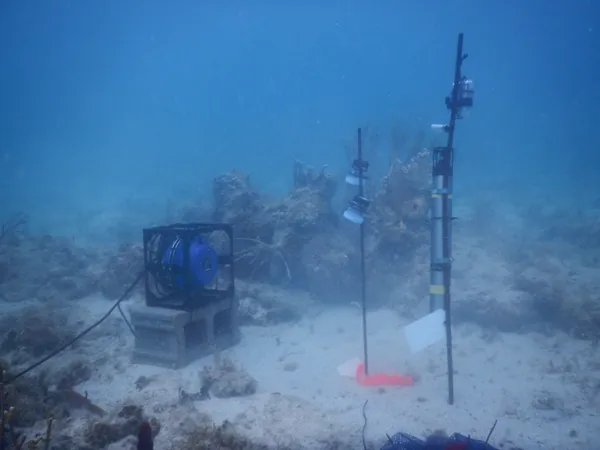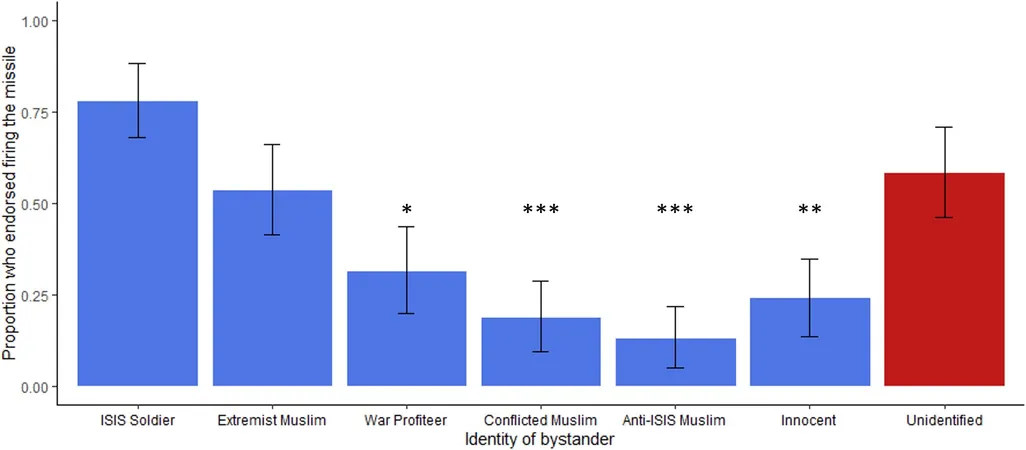
Coral Reefs Get a Soundtrack: How Playing Healthy Reef Sounds Can Boost Coral Larvae Growth!
2024-10-23
Author: Daniel
Introduction
Coral reefs around the globe are facing dire challenges, with many ecosystems suffering from pollution, unsustainable fishing practices, and climate change. These vital habitats support one billion people and provide a home for over a quarter of marine species. However, researchers have recently discovered a fascinating and innovative method to aid the recovery of these reefs: broadcasting the sounds of thriving coral ecosystems to encourage coral larvae growth.
A Groundbreaking Study from WHOI
A groundbreaking study from the Woods Hole Oceanographic Institution (WHOI) highlights a remarkable finding: larvae from golfball corals, scientifically known as Favia fragum, are more likely to settle in areas where they can hear the lively sounds of healthy reefs. This study marks the second time acoustic cues have been shown to influence coral settlement, revealing a promising new avenue for reef restoration.
Benefits of Acoustic Enrichment
“Acoustic enrichment is proving to be an effective technique to enhance coral settlement in both laboratory settings and natural environments,” explained Nadège Aoki, a doctoral candidate at WHOI and the lead author of the study published in JASA Express Letters. “Current research still has a limited range of coral species to reference, so finding another species that responds positively to sound indicates a broader potential for this technique.”
The Search for a Home
Coral larvae, in their early life stages, are like young adventurers searching for the perfect place to call home. They drift through the water, relying on various cues, including chemical signals, light, and intriguingly, sound. A healthy coral reef is bustling with aquatic life—fish communicate through purring and grunting while snapping shrimp create a distinctive crackling symphony. In stark contrast, damaged reefs tend to be eerily silent, and research shows that coral larvae can detect these differences.
Experimental Setup and Results
In their study, the researchers collected coral larvae from St. John, U.S. Virgin Islands, and set up experiments in two tranquil sandy bays. One set of larvae was subjected to the sounds of a healthy reef, captured from nearby Tektite Reef, via solar-powered speakers, while the other group was kept in silence.
The results were enlightening. After just 24 hours, 30% of the larvae exposed to healthy reef sounds had settled, a stark difference from the control group, which recorded no settlement. After 48 hours, the settlement rates were impressive, with about 73% in one bay and 85% in the other, though the researchers noted that the small sample sizes limited the statistical significance of these findings.
Larvae Responsiveness to Sound
An additional aquarium experiment indicated that golfball coral larvae are particularly responsive to healthy reef sounds during their first 36 hours. The researchers observed that after this critical window, the urgency to settle seemingly overrated the importance of sound cues, illustrating the short lifespan and fast-paced decision-making of coral larvae.
Implications for Coral Biology
“This work sheds light on the intricate biology of corals,” Aoki added. “With various reproductive strategies among different coral species, understanding these nuances could open the door to numerous questions about how sound impacts larval behavior across the spectrum.”
Future Prospects
Excitingly, this research shows that the influence of sound on coral larvae is detectable even in controlled environments, where factors like sound reflection can complicate acoustic communication. This could pioneer new methods for coral propagation in land-based nurseries.
Conclusion and Cautions
While the findings are promising, researchers caution that simply playing sounds in any marine area won't suffice. “We need an integrated approach, combining sound with an understanding of the ecosystem and other conservation strategies,” said Aran Mooney, a marine biologist at WHOI and the senior author of the study. “By harnessing acoustic enrichment responsibly, there is potential to scale this approach effectively across various coral species and environments.”
As awareness grows about the critical importance of coral reefs, innovative strategies like this one may become vital in the global effort to revitalize these precious ecosystems. So, could the sounds of a thriving reef be the secret key to restoring our ocean's health? Only time will tell!



 Brasil (PT)
Brasil (PT)
 Canada (EN)
Canada (EN)
 Chile (ES)
Chile (ES)
 España (ES)
España (ES)
 France (FR)
France (FR)
 Hong Kong (EN)
Hong Kong (EN)
 Italia (IT)
Italia (IT)
 日本 (JA)
日本 (JA)
 Magyarország (HU)
Magyarország (HU)
 Norge (NO)
Norge (NO)
 Polska (PL)
Polska (PL)
 Schweiz (DE)
Schweiz (DE)
 Singapore (EN)
Singapore (EN)
 Sverige (SV)
Sverige (SV)
 Suomi (FI)
Suomi (FI)
 Türkiye (TR)
Türkiye (TR)